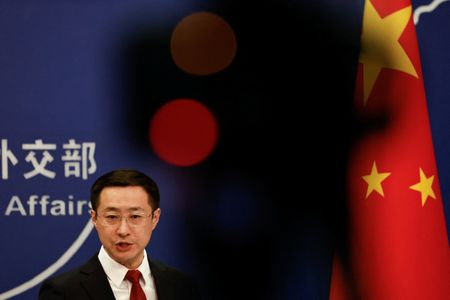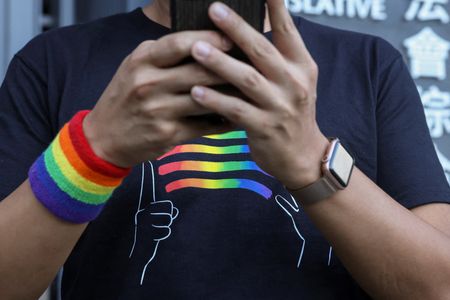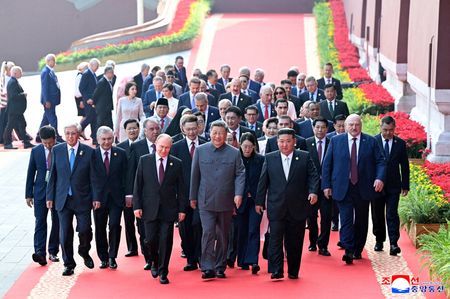By Jessie Pang
HONG KONG (Reuters) -Hong Kong’s Legislative Council on Wednesday vetoed a bill that would have allowed limited legal rights for same-sex couples who had registered their marriage or relationship overseas, drawing disappointment from LGBTQ groups and activists.
The bill had proposed a registration system to grant same-sex couples who are registered or married overseas to certain rights, such as hospital visits and funeral matters. It was voted down by the city’s pro-Beijing legislature 71 to 14.
WHAT’S THE BILL ABOUT?
The bill had proposed granting same-sex couples a say on medical matters including hospital visitation, access to medical information and organ donations or transplants.
It also proposed the right to handle a partner’s post-death affairs, including applying for a death certificate, claiming the body and arranging a funeral.
The government introduced the bill after a judgment by Hong Kong’s highest court in September 2023 that partially approved a landmark appeal to recognise same-sex partnerships.
Although the Court of Final Appeal didn’t grant the full constitutional right to same-sex marriage, the five judges gave the government two years to develop a legal framework to meet basic social needs.
Only those same-sex couples who had already sealed their union overseas would have been granted these rights, with at least one partner being a Hong Kong resident.
But the bill had faced fierce opposition from Hong Kong’s pro-Beijing legislative council – with many of the chamber’s lawmakers saying it would undermine traditional family values.
WHAT’S THE SIGNIFICANCE OF THIS BILL?
The bill represented an opportunity to implement what would have been a rare liberal shift in Hong Kong’s legal landscape, amid a years-long crackdown on dissent and the city’s pro-democracy opposition under a China-imposed national security law.
“This is a constitutional responsibility. This is a human rights issue,” said pro-democracy activist Jimmy Sham, who initially launched this legal push for marriage equality.
Sham was jailed for four years and three months in a subversion trial involving dozens of leading democrats, but soon after his release in May launched a petition and urged the Legislative Council to allow local registration for same-sex couples and to grant more visitation rights for jailed partners.
Only Taiwan, Nepal and Thailand allow same-sex unions in Asia, where largely conservative values still dominate politics and society. Some places, however, have taken inclusive steps to offer limited rights or partnership recognition including India.
Suen Yiu-tung, Associate Professor of Gender Studies Programme, CUHK, told Reuters “it seems that Hong Kong is sending quite a different signal to the other parts of the world in terms of LGBT+ rights”.
Suen added that he was quite concerned about the mental health of the local LGBT+ communities.
“Because we see that with research in other parts of the world, actually policy debate can also be quite a hurtful process for the minorities when their rights are put in the public domain to be debated for others,” Suen said.
Business groups in Hong Kong, Singapore and Japan have also become increasingly vocal in making the case that Asia’s leading economies must do more to encourage diversity – to better attract international talent.
WHAT COMES NEXT?
Some observers say the government is still obliged to abide by the top court’s ruling, but Hong Kong’s Constitutional Affairs Secretary Erick Tsang told reporters after the vote that the government wouldn’t appeal for an extension of the deadline of October 27. “We will next discuss and study this issue with the Department of Justice,” he said.
The bill would have represented another incremental step toward legal recognition of same-sex relationships in Hong Kong, a cosmopolitan city also bound by traditional Confucian values and influential Christian groups.
Dr Urania Chiu, an independent legal researcher based in the UK, told Reuters that “what actually happens next would be a political question, depending on the government’s next steps”.
While same-sex marriage is currently not allowed in Hong Kong, same-sex couples recognised overseas have some legal rights including tax assessments, inheritance rights and dependent visas — all of which had been fought for through multiple legal challenges through the years.
(Reporting by Jessie Pang; Editing by James Pomfret and Kim Coghill)












